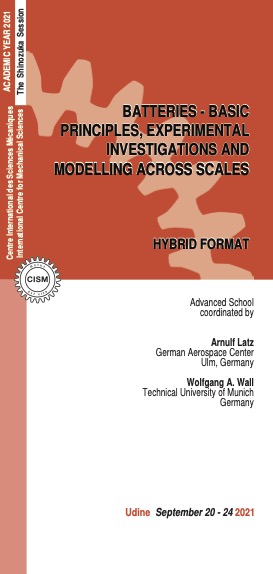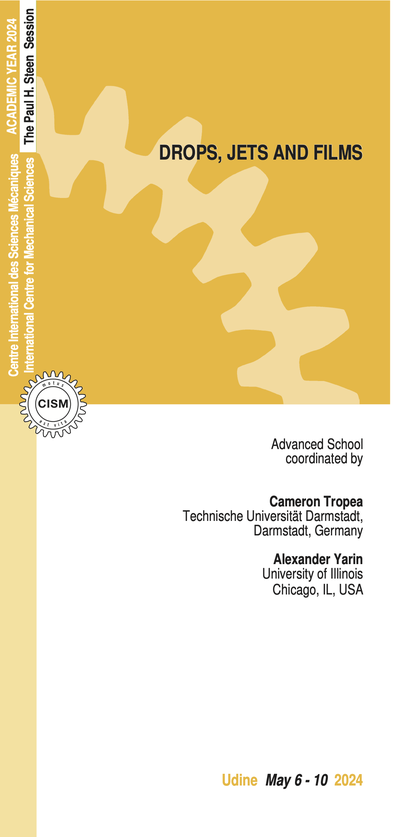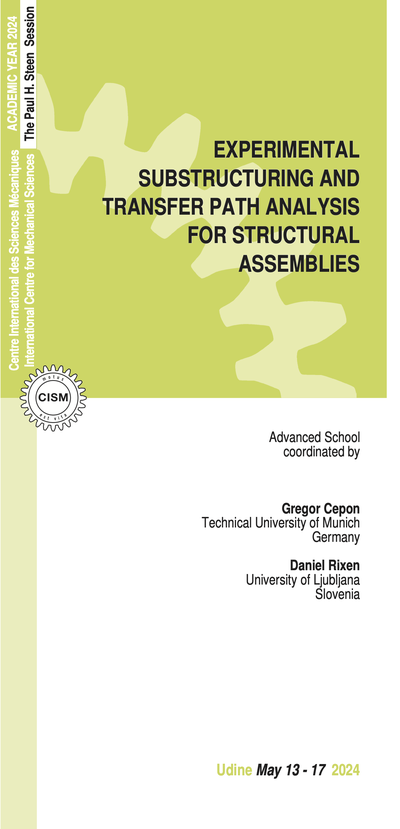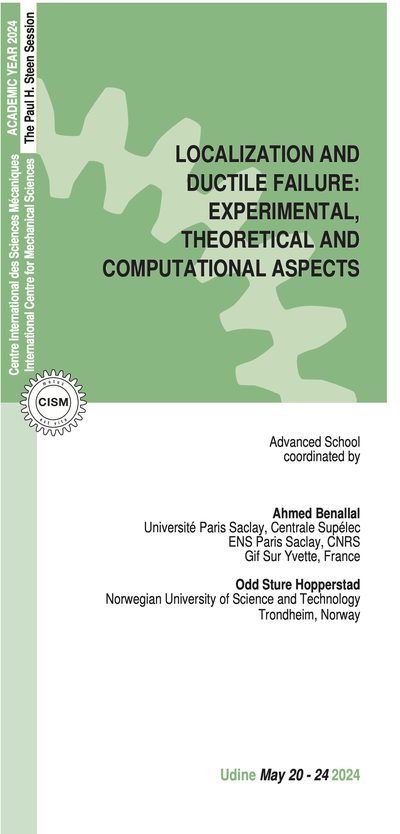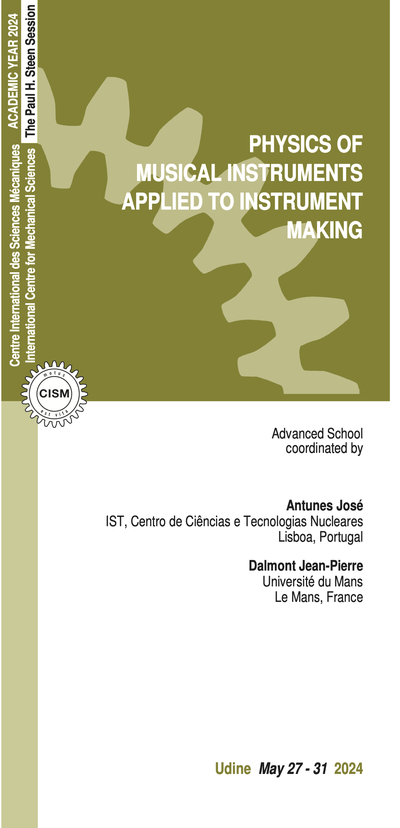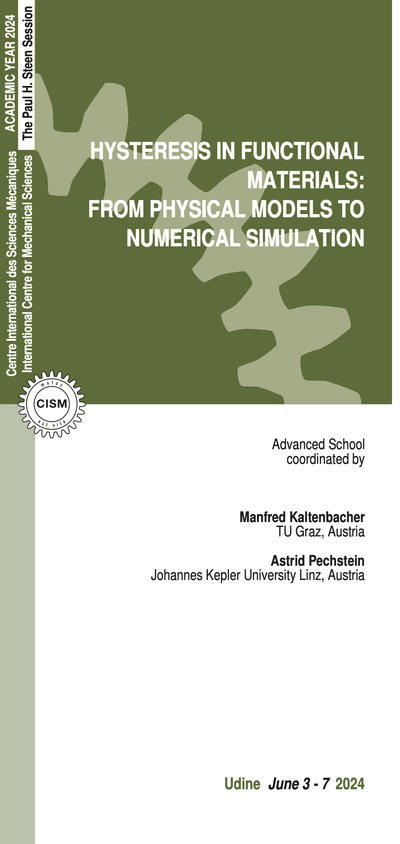Batteries are considered to be a key technology in a future energy and mobility system based on renewable and fluctuating energy sources. Depending on the application, the specifications for energy density, power density, safety and lifetime of batteries can vary considerably. Therefore, the need for optimization tools to balance application specific conflicting constraints on batteries is obvious. In addition, the demand for rapid developments of new energy storage materials and battery designs requires the transition to a rational, knowledge- based battery development strategy based on validated models and sophisticated simulation tools.
The challenge is to describe mathematically all electrochemical, physical and mechanical processes necessary for an efficient and safe operation of batteries, which, for such highly complex electrochemical storage devices means to model and couple processes on a large range of scales.
The course will cover theoretical methods as well as experimental insights on these different scales. Atomistic theories allow investigating thermodynamic and electrochemical stability of materials and combination of materials. They provide fundamental electrode material parameters and transport mechanisms and give insights in the reaction kinetics of chemical reactions. A very crucial factor for stability and power density of batteries is the choice of the electrolyte. Finding the right compromise between electrochemical stability, excellent transport properties and forming interfaces which support the reaction kinetics at positive and negative electrodes is a challenging task. The method of choice to investigate the behavior of electrolytes is molecular dynamics simulation (MD), either ab initio MD or classical MD with fine-tuned force fields for the electrolyte under investigation. For optimizing the structural design of the electrodes and the cell design from nanometer to cm scale continuum theories are necessary to describe the complex interplay of transport, reactions and mechanical processes during operation of the battery. To allow for a systematic coupling of continuum theories and underlying atomistic theories it is important to derive continuum models within rigorous theoretical concepts.
The course will give an introduction in state-of-the-art continuum modeling and simulation techniques for electrochemical as well as mechanical processes on electrode and device scale.
This part will be complemented by an overview over experimental techniques for investigating battery behavior and validating continuum theories of batteries. On the largest scale, the system scale, simulation tools are required which maintain the essential features of the underlying detailed models but are systematically simplified to allow for a real time control of the battery operation in order to guarantee safety and preserve lifetime of the battery. The description of the art of model reduction and real time simulations of battery responses on system requests rounds up this CISM course.
The course aims at doctoral students as well as (junior) researcher, from different backgrounds, both from academia and industry. In the afternoon of the first day, a poster/slide flash will be held to give participants the opportunity to briefly present their interest or working area. This will enable fostering a collegial discussion during the course.
Overview:
Van der Ven, Z. Deng, S. Banerjee, and S.P. Ong, Rechargeable Alkali- Ion Battery Materials: Theory and Computation, Chem. Rev. 2020 Jul 22, 120 (14), 6977-7019.
DensityFunctionalTheory (DFT) and MolecularDynamics (MD) Simulation:
M. P. Allen, and D. J. Tildesley (1987), “Computer Simulation of Liquids”, Oxford University Press.
D. Sholl and J. A. Steckel (2009), “Density Functional Theory: A Practical Introduction”, Wiley.
F. Jensen (2017), " Introduction to Computational Chemistry – 3rd Edition", Wiley.
Continuum Scale:
A. Kovetz (2006), “Electromagnetic Theory”, Oxford University Press.
J. Newman and K. E. Thomas- Alyea (2004), “Electrochemical Systems – 3rd Edition”, Wiley.
System Scale:
G.L. Plett (2015), “Battery Management Systems: Battery Modeling - Volume 1”, Artech House.
G.L. Plett (2015), “Battery Management Systems: Equivalent- Circuit Methods - Volume 2”, Artech House.
Battery Introduction and History:
M. Winter, B. Barnett and K. Xu, Before Li Ion Batteries, Chem. Rev.2018 Dec 12, 118 (23), 11433- 11456.
M. Stanley Whittingham, Lithium Batteries and Cathode Materials, Chem. Rev. 2004 Sep 14, 104 (10), 4271-4302.
K. Xu, Electrolytes and Interphases in Li-Ion Batteries and Beyond, Chem. Rev. 2014 Oct 29, 114 (23), 11503-11618.
6 lectures on: Molecular modeling of electrolytes with a focus on electrolyte electrochemical stability, oxidation/reduction of electrolytes vs HOMO/ LUMO, electrical double layer structure and its importance to stability, SEI, the Li cation transport mechanism, transference number and its relations to electrolyte structure.
5 lectures on: Energy storage device performance from a system perspective. Ragone plots. Electrical equivalent circuit models as a tool for control and estimation. Electrochemical models from a control engineering perspective. Thermal and degradation modelling of battery systems. Battery management systems – overview, sensors, estimation of SOC and SOH.
6 lectures on: Overview on experimental approaches assessing cell behavior on different levels (atomistic, component, cell level). Electrochemical techniques, diffraction, spectroscopy, microscopy (in situ/operando). Transport of ions/electrons in active materials and electrolytes, interface kinetics, thermal and mechanical properties. Evaluation of energy, power density, capacity fading, aging, etc.
6 lectures on: Non equilibrium thermodynamics and statistical physics for ionic materials in electric fields. Free energy based derivation of transport theories and complex double layer formation in highly concentrated electrolytes. Models for electrochemical reactions. Microstructure resolved models of batteries. Upscaling from microstructure to extended porous electrode theory.
6 lectures on: Atomistic simulations and predictive modeling of thermodynamics, mechanics, transport, and kinetics of the solid-state materials in batteries, including electrodes, solid electrolytes, solid electrolyte interphases (SEI), and interfaces. Multiscale modeling strategy starts from Density Functional Theory (DFT) predictions.
5 lectures on: Brief introduction to nonlinear continuum mechanics and coupled (monolithic & partitioned) multiphysics simulations. Coupled models for batteries with liquid electrolytes. Introduction to coupled thermo-electro-chemo-mechanical models for solid-state batteries. Modeling of electrode-electrolyte contact in all-solid-state batteries.
The registration fees are:
- Participation in presence, 600.00 Euro + VAT*
This fee includes a complimentary bag, four fixed menu buffet lunches (on Friday upon request), hot beverages, downloadable lecture notes.
- Participation online, 250.00 Euro + VAT*
This fee includes downloadable lecture notes.
Applicants must apply by August 20th for the "on-site" participation, and by September 12th 13th for the "on-line" participation. Application forms should be sent on-line through the following web site: http://www.cism.it. A message of confirmation will be sent to accepted participants.
Applicants requiring assistance with the registration should contact the secretariat at the following email address: cism@cism.it.
Applicants may cancel their course registration and receive a full refund by notifying CISM Secretariat in writing (by email to cism@cism.it) no later than two weeks prior to the start of the course.
Cancellation requests received during the two weeks prior to the start of the course will be charged a 50.00 Euro handling fee. Incorrect payments are also subject to a 50.00 Euro handling fee.
A limited number of participants from universities and research centres who are not supported by their own institutions can be offered lodging and/or board, if available, in a reasonably priced hotel or student guest house.
Requests should be sent to CISM Secretariat by July 20, 2021 along with the applicant's curriculum and a letter of recommendation by the head of the department or a supervisor confirming that the institute cannot provide funding.
Preference will be given to applicants from countries that sponsor CISM.
Information about travel and accommodation is available on the web site www.cism.it, or can be mailed upon request.
* Italian VAT is 22%.
